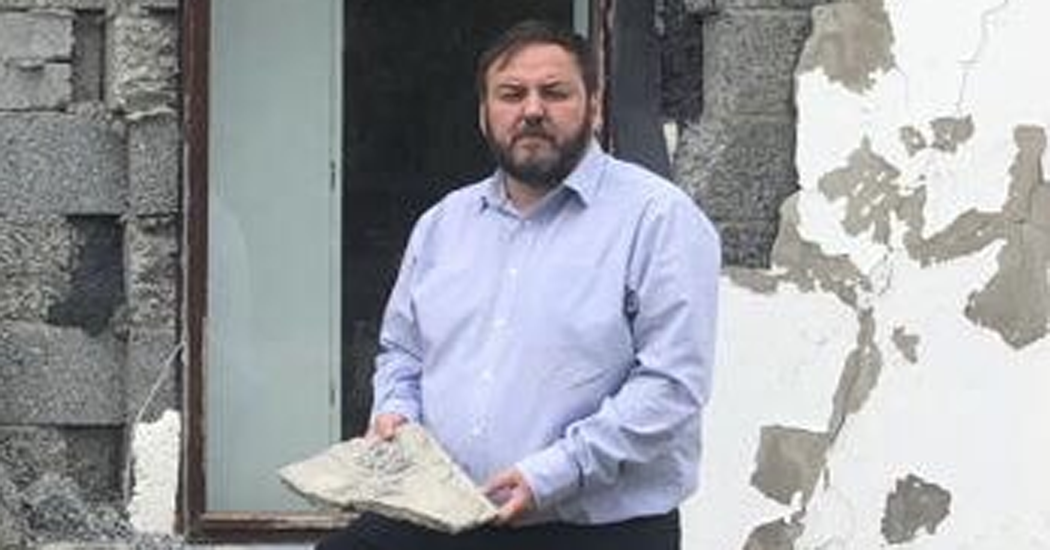A Donegal Sinn Féin TD has called on the Housing Minister Darragh O’Brien to take immediate action on the growing issue of the Housing Agency’s overturning of engineer recommendations for defective concrete block homes.
It was revealed that more than a third of all engineer’s recommendations for remediating homes in the defective concrete block scheme have been downgraded by the government’s agency so far.
The Housing Agency needs to urgently stop basing its decisions on the outdated I.S. 465 standard, says Deputy Padraig Mac Lochlainn.
In a letter to Minister O’Brien, Deputy Mac Lochlainn said: “It is clearly unsustainable for the engineers acting on behalf of the Housing Agency to continue to overrule the recommendations of engineers acting for homeowners based on the standard I.S. 465, that is not fit for purpose and in my opinion, discredited.
“Engineers Ireland have repeatedly outlined their serious concerns about this ongoing practice.
“Homeowners and engineers must have full confidence in the remediation solutions under the Enhanced Defective Concrete Block Grant Scheme. That is not currently the case.”
Deputy Mac Lochlainn also highlighted correspondence he received from Geraldine Larkin, CEO of the National Standards Authority of Ireland (NSAI), which said it is considering the Geological Survey Ireland (GSI) managed research regarding internal sulphate attack (ISA) and testing to identify ISA, Pyrrhotite alteration and other highly reactive forms of iron sulphide will be included in the amended I.S. 465.
As the NSAI considers the findings, Deputy Mac Lochlainn asked the Minister to “immediately act” to have these decisions paused pending the outcome of the NSAI’s deliberations.
A meeting of Donegal County Council’s Defective Concrete Blocks Scheme Committee yesterday revealed that of 315 remediation options granted by the Housing Agency, 123 were changed from the original recommendations made by homeowners’ engineers.
Of those, 111 were lowered from Option 1 (full demolition) to Options 2-4 or a combination of these. This represents 35% of all applications to the scheme.








